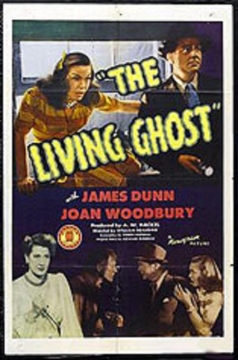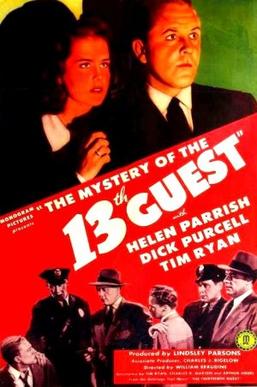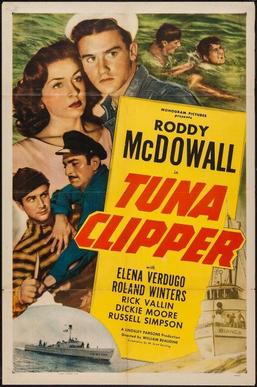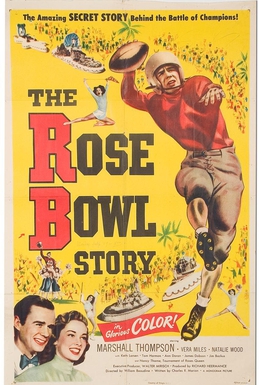
William Washington Beaudine was an American film director. He was one of Hollywood's most prolific directors, turning out films in remarkable numbers and in a wide variety of genres.

Clancy Street Boys is a 1943 comedy film directed by William Beaudine and starring the East Side Kids. It is Beaudine's first film with the team; he would direct several more in the series and many in the Bowery Boys canon. Leo Gorcey married the female lead Amelita Ward. There is no mention of "Clancy Street" in the film, but a rival gang at Cherry Street appears at the beginning and climax of the film.

Billy the Kid Versus Dracula is a 1966 American horror Western film directed by William Beaudine. The film is about Billy the Kid trying to save his fiancée from Dracula. The film was originally released as part of a double feature along with Jesse James Meets Frankenstein's Daughter in 1966. Both films were shot in eight days at Corriganville Movie Ranch and Paramount Studios in mid-1965; both were the final feature films of director Beaudine. The films were produced by television producer Carroll Case for Joseph E. Levine.

Misbehaving Husbands is a 1940 American comedy film directed by William Beaudine for Producers Releasing Corporation. The film had the working titles At Your Age and Dummy Husbands. Harry Langdon, Betty Blythe, Esther Muir, and others in the cast had been stars in silent films. It was Gig Young's film debut, under his real name Byron Barr.

Emergency Landing is a 1941 American aviation spy-fi romantic screwball comedy film directed by William Beaudine. The film stars Forrest Tucker in his second film and in his first leading role with co-stars Carol Hughes and Evelyn Brent. Emergency Landing features much-mismatched stock footage of various types of aircraft.

The Living Ghost is a 1942 American mystery-drama film directed by William Beaudine and produced by Monogram Pictures. Starring James Dunn and Joan Woodbury, the film incorporates elements of the horror genre as it follows an ex-private detective who is called in to investigate why a banker has turned into a zombie. As the detective shares wisecracks with the banker's cheeky secretary, the two fall in love. The film was distributed in the United Kingdom under the title Lend Me Your Ear, and later released on home video as A Walking Nightmare.

Duke of the Navy is a 1942 comedy film that was directed by William Beaudine from a screenplay by Beaudine, Gerald Drayson Adams, and John T. Coyle. It stars Ralph Byrd as Bill "Breezy" Duke, Stubby Kruger as Dan "Cookie" Cook, and Veda Ann Borg as Maureen.

Boy of Mine is a 1923 American silent family drama film directed by William Beaudine that was based upon a short story by Booth Tarkington. It stars Ben Alexander, Rockliffe Fellowes, and Henry B. Walthall. Wendy L. Marshall stated that "Beaudine had the Midas touch when it came to directing children" in films like this and Penrod and Sam.

Federal Fugitives is a 1941 American film noir directed by William Beaudine. The film stars Neil Hamilton, Doris Day, Victor Varconi, and Charles C. Wilson.

The Mystery of the 13th Guest is a 1943 American crime/mystery film directed by William Beaudine and released by Monogram Pictures. It is based on Armitage Trail's 1929 novel The 13th Guest and is an updated version of the 1932 film The Thirteenth Guest. The film stars Helen Parrish as a young woman who returns to her grandfather's house 13 years after his death to read his will according to his wishes.
Wedding Rings is a 1929 American all-talking sound Pre-Code drama film directed by William Beaudine and starring H.B. Warner, Lois Wilson and Olive Borden. It is considered a lost film. Due to its adult subject matter, the film was banned from being shown by censors in many locations. First National Pictures had previously filmed the story back in 1924 until the title of the source novel, namely, The Dark Swan.
Men in Her Life is a 1931 American pre-Code drama film directed by William Beaudine and starring Lois Moran, Charles Bickford and Victor Varconi. It was based on a 1930 novel by Warner Fabian. It was made during a brief spell Beaudine had working at Columbia Pictures. Critics considered the film one of the studio's better B releases. Part of the film was set in the Café de la Paix in Paris which was reconstructed authentically at the Columbia studios. Columbia also made a Spanish-language version of this film, entitled Hombres en mi vida.

Jet Job is a 1952 American aviation action film directed by William Beaudine. The film stars Stanley Clements, John Litel and Bob Nichols. Jet Job features stock footage of various types of USAF military aircraft.
Pride of the Blue Grass is a 1954 American drama film directed by William Beaudine and starring Lloyd Bridges, Vera Miles and Margaret Sheridan. It is also known by the alternative title Prince of the Blue Grass. It was the last feature film shot in Cinecolor.

Tuna Clipper is a 1949 American drama film directed by William Beaudine and starring Roddy McDowall, Elena Verdugo and Roland Winters. It was one of a series of films McDowall made for Monogram.

The Rose Bowl Story is a 1952 American romance film directed by William Beaudine and starring Marshall Thompson, Vera Miles and Richard Rober, featuring a young Natalie Wood. The film was made in Cinecolor. It follows the relationship between a college football player and his girlfriend.

Havana Rose is a 1951 American musical comedy film directed by William Beaudine and starring Estelita Rodriguez, Bill Williams and Hugh Herbert. It was one of a number of American films set in Havana during the era.
Second Chance is a 1950 American black-and-white drama film directed by William Beaudine and produced by Paul F. Heard for the Protestant Film Commission. It stars Ruth Warrick, John Hubbard, and Hugh Beaumont. The story centers on a middle-aged woman who has received a dire health prognosis from her doctor and proceeds to look back on her life in flashback, seeing herself change from a sweet and idealistic young bride into a brittle and disillusioned older woman. In the end, the wake-up call is really a dream, but the woman realizes that only by reconnecting with her Christian faith and with God will she manage to improve her life and relationships. The film was not released commercially, but was widely distributed to Protestant denominational churches in the United States and Canada.
Jed Buell was an American film producer, director, and screenwriter who specialized in low-budget B pictures in a variety of subjects including singing cowboy films featuring midgets and black actors.
A Wonderful Life is a 1951 black-and-white short drama film produced by the National Council of Churches of Christ and distributed by the Protestant Film Commission. It is an adaptation of Frank Capra's 1946 film It's a Wonderful Life for the Christian film industry. Directed by William Beaudine, it stars James Dunn, Allene Roberts, and Arthur Shields. The film retells the life of an ordinary Christian family man in flashback as his family and friends remember all the good he did through his devotion to church and community. The film emphasizes the power of faith, love, and community service for living a meaningful life, together with the message that people do not realize the true worth of others until after they have died. The film was not released commercially, but was distributed to some 30,000 churches throughout the United States and Canada.













